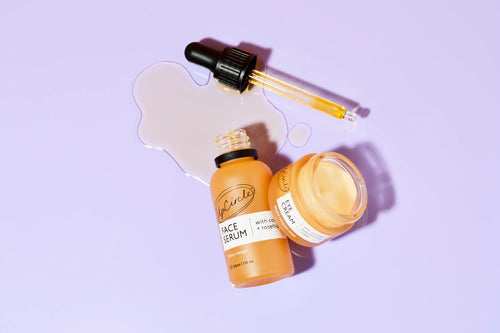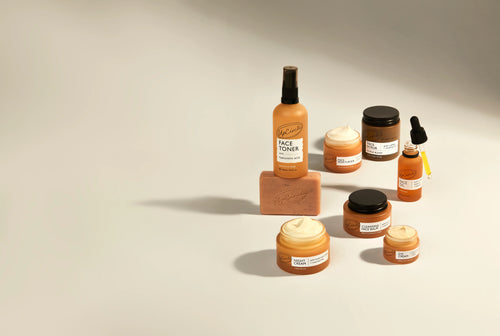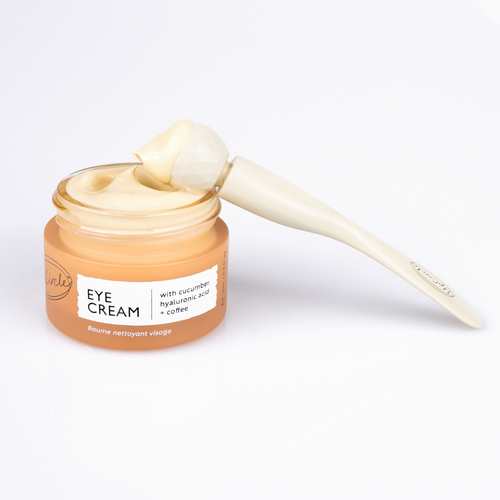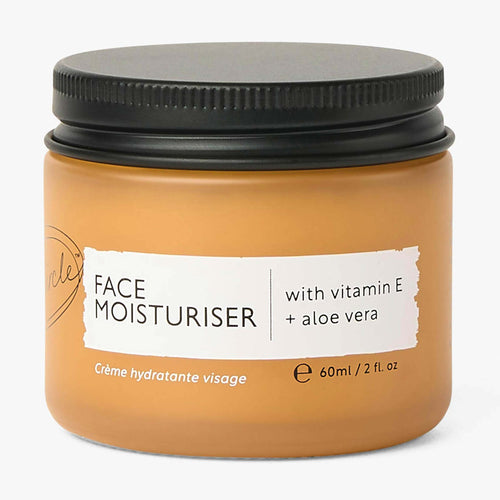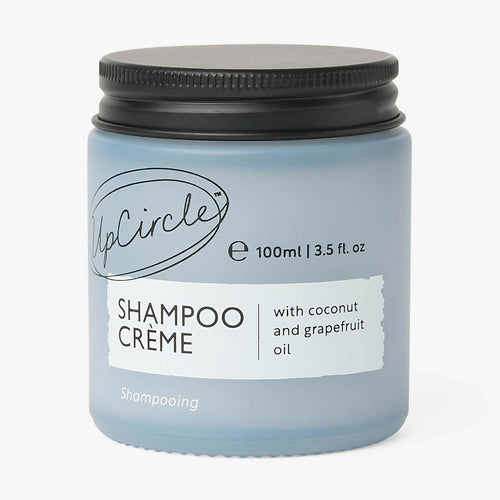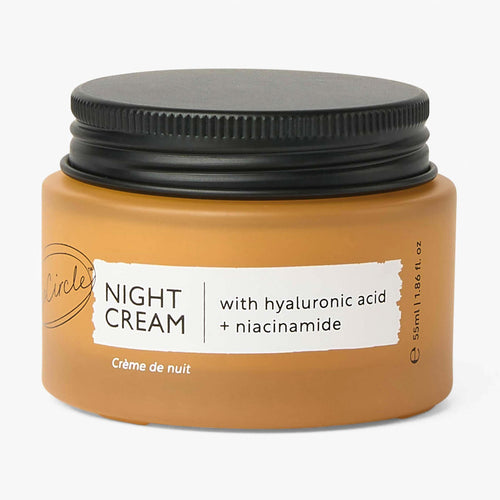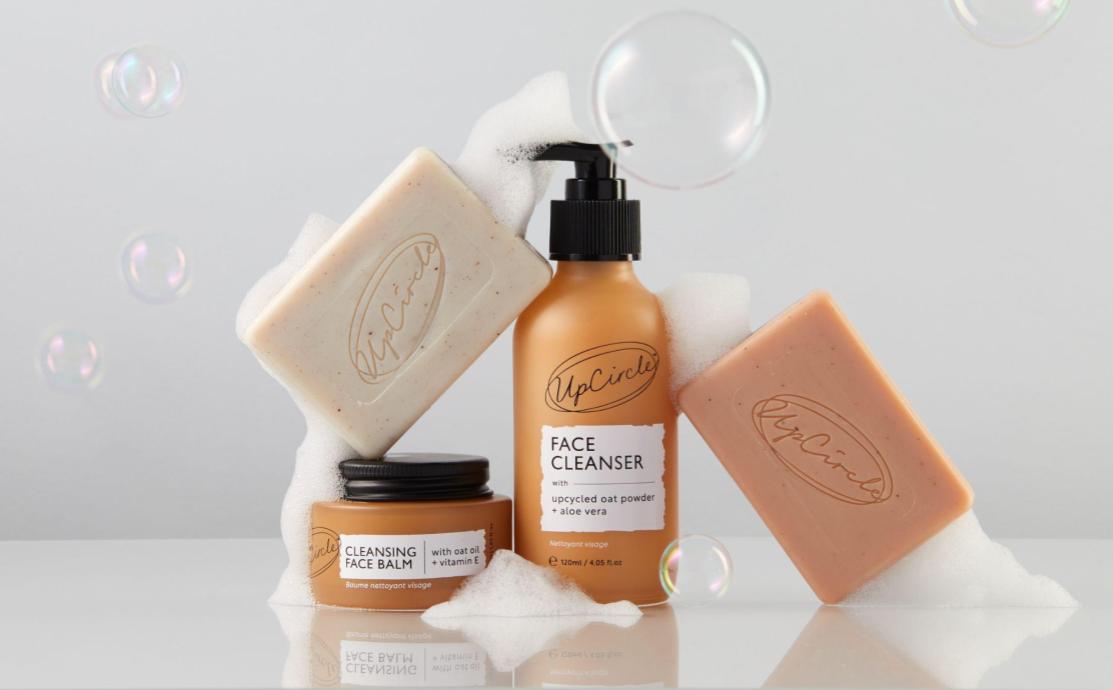It’s easy to think that the more products you use on your skin, the ‘better’ it will become. But that’s not necessarily the case, and can lead to over-processed skin.
What is over-processed skin?
Over-processed skin is when your skin has become damaged due to excessive use of skincare products, using harsh products, and a variety of other reasons.
Skin that is over-processed can feel irritated and sensitive, dry, and flaky. The skin can also appear red, as well as lacking in radiance.
What causes over-processed skin?
Everyone’s skin is individual, as is what impacts it. However, there are some common skincare practices that we find contribute to over-processed skin. This can also be cumulative, with several contributing factors.
1. Too much and too harsh exfoliation
Regular exfoliation works to improve the skin’s texture, reduce the appearance of fine lines and wrinkles, and stimulate cell turnover. Exfoliation removes dead skin cells from the surface of the skin, helping to promote a smoother, brighter complexion. It unclogs pores – helping to prevent breakouts – and allows skincare products to penetrate more effectively.
While exfoliation helps to buff away dead skin cells and debris from the surface of the skin, over-exfoliation can strip the skin of its protective barrier. Over-exfoliated skin can become inflamed, sometimes leading to breakouts, irritation and sensitivity.
Chemical exfoliators contain acids – such as lactic acid or glycolic acid – or enzymes that dissolve dead skin cells without scrubbing. While these can be beneficial for the skin, they can also be harsh on the skin, causing sensitivity and irritation.
Top tip: We recommend using a gentle face scrub no more than two to three times per week.
Product pick: The floral blend of our coffee face scrub is great for sensitive skin, helping to soothe any redness and irritation. Rich in vitamins E and B, jojoba oil deeply moisturises, helping dry, dehydrated skin regain hydration.
2. Using harsh cleansers
Cleansing the skin with a product that has a high pH level can disrupt the skin's natural acid mantle. This can lead to your skin feeling dry and irritated, and can compromise the barrier function of your skin.
Surfactants – like sodium lauryl sulphate (SLS) – and added fragrance in cleansers can also be too harsh on the skin. With these products, the skin can become stripped of its natural oils, leaving the skin dry, tight, and prone to irritation.
Top tip: Stick to natural cleansers that are kind to your skin. Whatever your preference – bar, milk or balm – there will be a cleanser that works with your skin, not against it.
Product pick: Our Chai Soap Cleansing Duo is perfect for use on both your body or your face. Just apply to the skin with water to create a delightfully creamy lather.
3. Using skincare actives too frequently
Active ingredients in skincare specifically target a skin condition or complaint, whether that be dry skin, acne or skin texture.
For example, using ingredients like retinoids, alpha hydroxy acids (AHAs), beta hydroxy acids (BHAs), and vitamin C can be highly beneficial for your skin in moderation. However, excessive use or combining too many active ingredients at once can overwhelm the skin and cause irritation, redness, and sensitivity.
Top tip: Use skincare actives in moderation, and remember that all skin is wonderful. Skin is meant to have texture; if you want to see real people and real skin, head to our Instagram.
How to combat over-processed skin
1. Prioritise hydration
Hydration is the key to a great skincare routine. Using a nourishing natural moisturiser on your skin not only helps your skin to feel great, but it actively helps to repair and strengthen the skin’s natural barrier.
With over-processed skin, the skin barrier is often compromised, so using intensely nourishing products that increase moisture levels in the skin is essential. The skin barrier is made up of lipids like ceramides which form a protective barrier on the skin's surface. Keeping your skin hydrated helps to replenish these lipids, increasing the barrier's function and integrity.
Our Face Moisturiser is rich in vitamin E, helping to boost collagen production in the skin. Award-winning, our face moisturiser is deeply hydrating, fast-absorbing, and suitable for all skin types. Infused with sunflower seed oil, shea butter and aloe vera, this moisturiser is brimming with skin-loving ingredients.
For the evenings, our Night Cream is infused with both hyaluronic acid and niacinamide to hydrate the skin and even out the skin tone. This night cream is formulated using upcycled blueberries which are rich in vitamin A. The cold-pressed blueberry extract helps to protect the skin against blue light, and is also a source of pro-retinol that works to minimise the signs of ageing on the skin.
2. Go back to basics
You don’t need a 10-step skincare routine to give your skin the nourishment that it needs, just a handful of hardworking products that are formulated with skin-loving ingredients.
Our Cleanse, Tone + Moisturise Set is perfect for taking your skin back to basics using natural products. With this set, you get three full-size products: our Cleansing Balm with Oat Oil, Face Toner with Hyaluronic Acid and Face Moisturiser with Vitamin E.
3. Cycle which skincare products you use
If you’re still finding that your skin feels over-sensitive, dry and flaky, you may want to consider cycling which skincare products you use on which days.
The concept of skin cycling involves avoiding certain combinations of products, using products on certain days and importantly, giving your skin ‘rest days’ in between using certain products.
We’d recommend avoiding particularly harsh products like retinoids – but if you simply can’t bear to remove it from your routine, consider a natural retinol alternative like rosehip oil, or a four-day skin cycling routine, with ‘active’ days and ‘rest days’.
By bringing your skincare back to basics and being mindful about the ingredients you are using on your skin and when, you can combat over-processed skin.
Discover our full range of vegan products at UpCircle.

